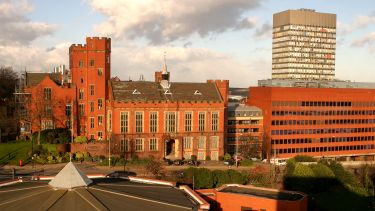About BIOPOL
BIOPOL is an interdisciplinary European training network at the interface of cell biology, physics and engineering dedicated to the training of 15 early stage researchers.

What is BIOPOL?
Following an era of molecular genetics and protein biochemistry the importance of physical properties (intrinsic and extrinsic from the environment) for the understanding of cellular behaviour has re-entered the focus of modern cell biology.
The network was established on 01.01.2015 and ran until 31.12.2018.
A new supra-disciplinary research field is emerging, bringing together molecular cell biologists, physicists and engineers aimed at an in-depth understanding of fundamental cellular mechano-chemical principles.
BIOPOL combines exactly this required expertise in a European training network designed to train the next generation of scientists in interdisciplinary research, providing skills to foster innovation potential and entrepreneurship.
Within one joint training program, BIOPOL has assembled a unique multidisciplinary consortium, including top scientists from the fields of molecular/developmental cell biology, membrane physics, engineering as well as specialists from the private sector.
The scientific objectives focus on understanding fundamental mechanisms of cellular mechanosensing in health and disease, mechanics of the actomyosin cortex and mechanochemical regulation of cell polarity including tissue formation.
BIOPOL's collaborative innovative research program is an integral part of its training program and is further translated into seven state-of-the-art experimental training stations representing the expertise within the consortium.
BIOPOL will train early stage researchers in cutting edge technologies, (e.g. advanced atomic force microscopy), novel photonic tools, (e.g. optical stretcher and optical tweezers), and novel chip based technologies (e.g. cell micropatterning and organ-on-a-chip microfluidics technology).
In addition, BIOPOL has developed a three year modular curriculum including industry secondments, workshops on creativity and business skills, summer schools, business plan competitions and international conferences with a specific agenda of transferable skill training elements highly relevant for scientific communication, translational research and, in particular, entrepreneurship.
This project has received funding from the European Union’s Horizon 2020 research and innovation programme under the Marie Skłodowska-Curie grant agreement No 641639.
Contact
Enquiries should be directed to the project co-ordinator, Dr Kai Erdmann:
Dr. Kai Erdmann
Department of Biomedical Science
University of Sheffield, UK
Tel: +44 114 222 4698
e-mail: k.erdmann@sheffield.ac.uk
